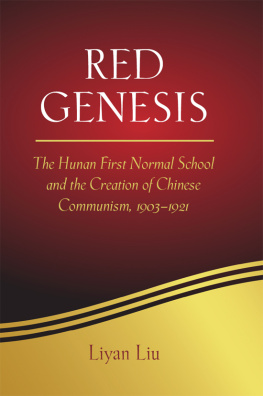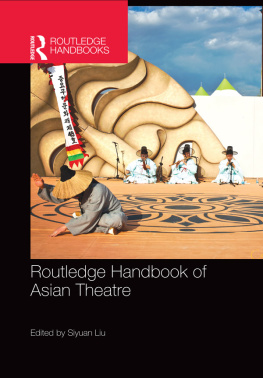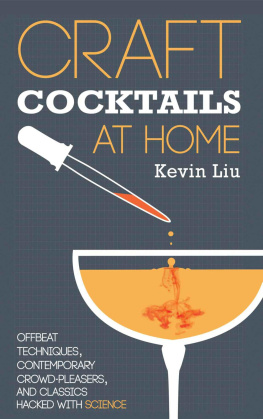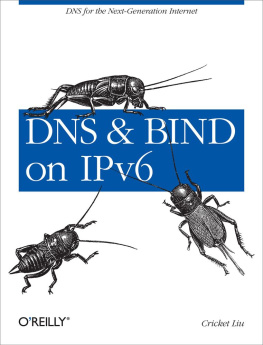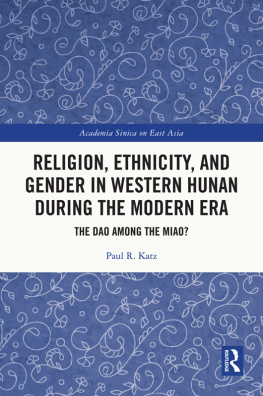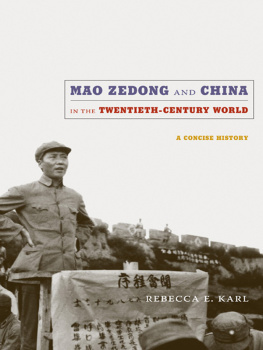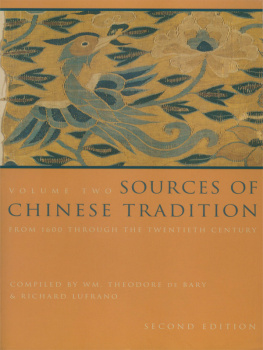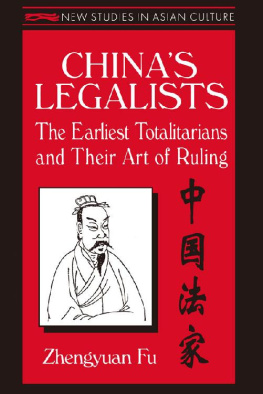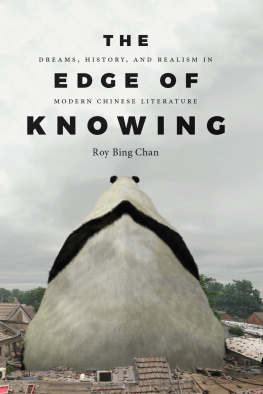SUNY series in Chinese Philosophy and Culture

Roger T. Ames, editor
Red Genesis
The Hunan Normal School and the Creation of Chinese Communism, 19031921
Liyan Liu

Published by State University of New York Press, Albany
2012 State University of New York
All rights reserved
Printed in the United States of America
No part of this book may be used or reproduced in any manner whatsoever without written permission. No part of this book may be stored in a retrieval system or transmitted in any form or by any means including electronic, electrostatic, magnetic tape, mechanical, photocopying, recording, or otherwise without the prior permission in writing of the publisher.
For information, contact State University of New York Press, Albany, NY www.sunypress.edu
Production by Eileen Meehan
Marketing by Anne M. Valentine
Library of Congress Cataloging-in-Publication Data
Liu, Liyan.
Red genesis : the Hunan Normal School and the creation of Chinese communism, 19031921 / Liyan Liu.
p. cm.
Includes bibliographical references and index.
ISBN 978-1-4384-4503-8 (hardcover : alk. paper)
1. Hunan Sheng di yi shi fan xue xiaoHistory. 2. CommunismChinaHistory. 3. Educational changeChinaHistory20th century. I. Title. II. Title: Hunan Normal School and the creation of Chinese communism, 19031921.
LB2127.C4854L58 2012
378.51'215dc23
2012019746
10 9 8 7 6 5 4 3 2 1
In memory of my mother
List of Illustrations
Maps
Figure
Table
Illustrations
Acknowledgments
This book is the product of a long journey of intellectual inquiry. During the past fifteen years or more that this book was being conceived, written, and repeatedly revised, many people offered invaluable support. Teachers were the first to encourage my pursuit of this topic in graduate school. At the outset, I express deep gratitude to my previous PhD adviser, Hao Chang, for having directed me to this subject, and for guiding me, encouraging me, and teaching me throughout the research. His preeminent scholarship had a strong influence on me while I was conducting research and in the early stage of writing this book. My sincere gratitude goes to James R. Bartholomew, my co-adviser, for his unfailing support, warm encouragement, and valuable advice. I owe an equal debt of gratitude to Christopher A. Reed for his generous support, academic encouragement, insightful advice, and criticism. I am very grateful to him for reading parts of my work and providing many valuable insights and criticism. I also am grateful to Kirk A. Denton for his strong support and invaluable comments and advice.
I am particularly grateful to Yan-shuan Lao, whose unfailing help and encouragement continued after my graduation and helped me to pursue and accomplish this work. His sinological erudition, especially in the area of classical Chinese, helped me in many valuable and concrete ways. He receives my heartiest thanks.
I am greatly indebted to Charlton M. Lewis who pointed me to the materials of Hunan and guided me through the maze of Chinese documents in the early stage. He also read different versions of parts of this work and gave very valuable comments and advice. Dajiang He and Jingshen Xia helped me interpret some classical Chinese into graceful modern Chinese in the early stage of writing, which made it much easier for me to write in English.
When I was doing research in China in 1997, I benefited tremendously from the help of several scholars and institutions. Foremost among them was Wang Xingguo of Hunan Provincial Social Science Institute to whom I owe a great debt of gratitude for sharing with me his wide-ranging knowledge of Yang Changji and Mao Zedong, and also for guiding me to many valuable sources, including his manuscript about famous people in Hunan. I benefited greatly from many discussions with him and his insights on Yang and Mao while I was writing and revising this book. I would like to thank Sun Hailin, former vice principal of Hunan First Normal School, for helping me to gain access to some fascinating materials on First Normal and for granting permission to reproduce the photos at the school's archives and use my interviews with him in the book. I am grateful to Dai Zuocai of Hunan People's Press for helping me gain access to valuable and relevant materials at archives in Hunan.
In the process of writing and revising this book, many friends and colleagues kindly read and commented on parts or all of the book manuscript at one stage or another. I am grateful to Barry Keenan, Xiaobing Li, Kathryn Bernhardt, the late Stephen C. Averill, George Wei, Robert Culp, Merle Rife, Yi Sun, and Sam Gilbert for their invaluable suggestions and corrections.
Particular gratitude goes to Kristin Stapleton for her strong support and warm encouragement over the years and for her insightful comments and criticism on this work. I owe special thanks for her help and for being a very special friend. Special thanks go to my good friend Xiaoping Cong, who read numerous drafts of parts of the work, offered invaluable criticism and suggestions, and shared with me her resources and expertise. I benefited greatly from our many discussions together. I am grateful to my friend Greg Epp, who read the manuscript and offered valuable comments and helped polish the prose.
Special thanks to my colleagues in the Department of History at Georgetown College. First of all, I am deeply grateful to James Klotter for his unfailing help. He read numerous drafts of the manuscript and offered helpful remarks, suggestions, and edits. He has been an invaluable source of intellectual guidance as well as a reliable friend who was always there whenever I needed his help. I am equally indebted to Lindsey Apple who read several various versions of the manuscript and offered valuable comments, suggestions, and editing. I thank him for his help and for being a very special friend. I also appreciate the inspiration and support that I received in various ways from my colleagues Harold Tallant, Clifford Wargelin, Ellen Emerick, and Lisa Lykins, who have now become my friends. Special appreciation goes to Provost Rosemary Allen for her warm support and assistance, which made the publication of this book occur sooner. I would like to express my gratitude to Georgetown College for the Henlein Junior Faculty Research Fellowship in spring 2006, which greatly facilitated the writing of the manuscript. Finally, a number of people provided other kinds of intellectual and technical assistance or helped with materials. For their help, I thank Pingchao Zhu, Xiaoming Chen, Xiansheng Tian, Wu Yunji, Vince Sizemore, and Grover Hibberd. Thanks also go to Zhu Yumo for letting me use pictures he took of the Hunan First Normal in the book.
Many thanks are due to the staff of the following libraries and archives for their kind assistance in finding many precious documents that have enriched my research: the Ohio State University Library, the Hunan Provincial Archives and Library, the Hunan First Normal School Archives and Library, and the Georgetown College Library. My colleague, Susan Martin at the College Library even helped me get materials from as far as Aberdeen in Scotland. She receives my sincerest appreciation. I also thank the Hunan Provincial Archives and the Hunan First Normal School Archives and Library for granting permission to reproduce the photos and maps in the book. Parts of is based on a revision of an article, A Provincial Scholar becomes a Young Radical published in
Next page
